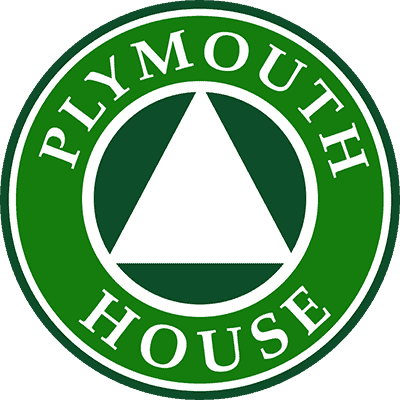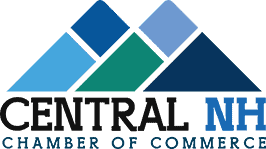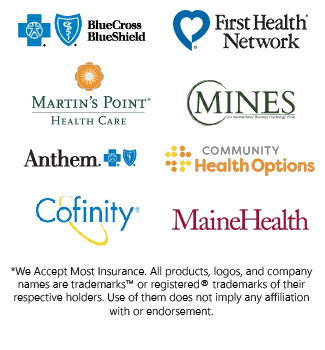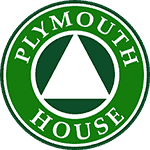Addiction Treatment & Drug & Alcohol Rehab Center Near Woodstock, NH
The Plymouth House, located near Woodstock, NH, offers innovative rehab programs for drug and alcohol use disorders. Our client-centered approach focuses on providing specialized services, such as medical detox, psychotherapies, and dual diagnosis treatment, while considering each person’s needs, goals, and circumstances.
If you are finding it challenging to stop misusing drugs or alcohol, we can assist you in starting the healing process. Our primary goal is to encourage those we treat and equip them with the coping skills they need to achieve abstinence and sustain long-lasting sobriety. We believe people living with addiction deserve every chance to live the healthiest, most fulfilling life possible.
Drug Detox & Addiction Treatment Services Near Woodstock, NH
Our New Hampshire rehab center offers detox and substance use disorder (SUD) treatment services for many substances, including alcohol, illicit substances, and prescription medications.
Disorders and addictions we treat at our New Hampshire treatment facility include:
Alcohol Detox
Withdrawing from alcohol is often highly challenging and can be life-threatening. According to the National Library of Medicine, people who are at risk of alcohol withdrawal syndrome (AWS) should not attempt to stop drinking abruptly on their own. (1)
Medical detox provides 24/7 supervision to ensure individuals who are struggling with alcohol misuse or dependence are safe and relatively comfortable.
We Are Here For You
Let Us Help You Heal
Our Drug & Alcohol recovery services are second to none.
Learn how we can help by speaking with one of our Treatment Advisors today.
Opioid Detox
Illicit opioids commonly include street drugs such as heroin, fentanyl, and various analogs. Although opioid withdrawal is not usually life-threatening, it is very uncomfortable and difficult to manage without help, according to the National Library of Medicine (2).
Medical detox provides those attempting to overcome opioid use disorder (OUD) with 24/7 clinical supervision along with medications to ease withdrawal symptoms and prevent complications.
Stimulant Detox
Illicit stimulants commonly misused include street drugs such as cocaine and methamphetamine (meth). Stimulant withdrawal is rarely life-threatening, but abstinence can be difficult to achieve without professional help.
At The Plymouth House, detoxing from stimulants involves around-the-clock medical monitoring combined with medications to ease withdrawal symptoms and evidence-based therapies to help you learn how to live without stimulant drugs.
Prescription Drug Detox
Some prescription medications carry a risk of addiction and misuse, per the National Institute on Drug Abuse (3). These include opioid-based painkillers, like oxycodone, hydrocodone, morphine, and prescription fentanyl; stimulants used to treat attention deficit hyperactivity disorder (ADHD), like Adderall (amphetamine) and Ritalin (methylphenidate); and antianxiety medications like benzodiazepines.
For some people, stopping prescription medication can be as difficult and dangerous as illicit drugs. Prescription opioid withdrawal causes the same symptoms as heroin withdrawal. Prescription stimulant withdrawal is similar to withdrawal from cocaine or meth withdrawal. Medically supervised prescription drug detox follows different treatment protocols depending on the medication.
Benzodiazepine Detox
Benzodiazepines, like Valium, Xanax, Ativan, and Klonopin, are minor tranquilizers commonly used to treat a variety of anxiety-related disorders, insomnia, and seizures. These prescription medications deserve special mention because, like alcohol, benzodiazepine detox can be life-threatening.
Benzodiazepine withdrawal generally requires clinical supervision to ensure your safety. Our medical staff will monitor you closely and prescribe medication to prevent complications.
Synthetic Drug Detox
Synthetic drugs are designed to mimic the effects of naturally occurring substances, often with variations to their chemical structure to circumvent drug laws and regulations.
Common classes of synthetic drugs include:
- Cannabinoids, like K2, Spice
- Hallucinogens, such as LSD
- Opioids, like U44700 and fentanyl analogs
- Designer amphetamines, including ephedrine, cathinone, phentermine
- Dissociatives, such as ketamine and PCP
The withdrawal symptoms and treatment approaches associated with these substances and other synthetic substances vary in terms of their class (e.g., opioids or amphetamines) and the desired effects they elicit. They are not generally lethal in terms of their direct effects, but severe symptoms, such as psychosis or suicidality, can increase the risk of catastrophic injuries and death.
Our Drug & Alcohol Treatment Services Include
Our Levels of Care for Substance Use Recovery
The Plymouth House provides different levels of care, including medical detox, residential inpatient, partial hospitalization, and extended care programs. Inpatient treatment involves around-the-clock care and medical monitoring in a comfortable, supportive residential setting for 2 to 4 weeks. This format requires a 24/7 stay at the facility and adherence to a structured daily schedule.
The residential inpatient program offerings are comprehensive and heavily based on behavioral therapies. Individuals work with a licensed therapist and participate in a full daily schedule of group therapy sessions, workshops, and recreational activities. Residential programs are typically suitable for those who require intensive treatment and a high degree of support.
The Partial Hospitalization Program (PHP) provides treatment six days a week (with evenings and Sundays off), including a full schedule of therapies and activities similar to residential. However, the focus shifts to the maintenance of long-term sobriety and relapse prevention. PHPs are typically most appropriate for those transitioning from higher levels of care or experiencing less severe addictions.
Our extended care program allows individuals to continue coming to The Plymouth House campus to continue their therapy and attend groups, meetings, and workshops. While participating in this program, clients live off-site in a safe, sober living home with a supportive community to help them gradually and confidently reintegrate into the world.
Substance use treatment programs include a variety of therapies and strategies designed to address substance use disorder from multiple angles. Services and treatments offered at Plymouth House include:
- Individual therapy
- Cognitive behavioral therapy (CBT)
- Group therapy
- Family therapy
- Motivational interviewing
- Dialectical behavioral therapy (DBT)
- Eye movement desensitization and reprocessing (EMDR)
- Professional intervention services
Other services include interventions, life skills training, yoga, meditation, and more.
Ready To Begin Your Drug & Alcohol Treatment?
We Offer A Safe & Effective Program
Don’t let Drug & Alcohol addiction control your life.
Call us today and let’s get you started on the path to a better you.
Drug & Alcohol Use Statistics in Woodstock, NH
Woodstock, New Hampshire, is a small community in Grafton County.
According to the Institute for Health Metrics and Evaluation, Woodstock and the greater Grafton County area have higher rates of excessive alcohol intake than other parts of the state and nation, with estimated rates of heavy drinking or binge drinking at 9% for women and 13.5% for men (4).
Additionally, the 2021 National Survey on Drug Use and Health reports an estimated 17% of New Hampshire residents are living with a substance use disorder (5).
What To Look For in a Local Addiction Treatment Center Near Woodstock
Selecting the most appropriate substance use treatment center is a critical decision that can significantly affect the potential for success in a person’s recovery.
Important Features To Look for in Local Rehab Treatment Centers Include:
- Accreditation and licensing from organizations such as the Joint Commission
- A multidisciplinary team of medical and substance use treatment specialists, including doctors, therapists, counselors, etc.
- Medical detox services to ensure a safe and supportive withdrawal process
- Evidence-based practices, including CBT, motivational interviewing, and other therapeutic approaches
- Continuum of care that includes varying intensity levels, such as inpatient treatment and partial hospitalization programs
- Personalized treatment plans tailored to meet the unique needs and goals of each individual
- Dual diagnosis treatment for co-occurring behavioral health disorders, such as depression and anxiety
- Family involvement and support, including family therapy or educational programs
- Strategies for preventing relapse, such as ongoing education to foster coping skills and resilience
Begin Healing Now!
Have A Call With One Of Our Treatment Advisors
Don’t Suffer Any Longer
Why Choose The Plymouth House for Your Recovery?
The Plymouth House’s 7-acre campus offers an idyllic setting for healing and recovery from substance use. Our retreat was designed to provide a supportive environment with comfortable amenities and individualized care for each person’s recovery journey.
If you are struggling with drug or alcohol dependence, we can provide you with access to the support you need to develop new coping mechanisms and learn strategies to help you maintain long-lasting sobriety.
Contact us today to receive a free, no-obligation health insurance benefits check and learn more about our streamlined admissions process and various levels of care. By participating in our programs, you will gradually feel that recovery is becoming increasingly attainable and that you can reclaim the healthy and rewarding life you deserve.
Get Started Now
Give us a call 24/7
(888) 693-1927















